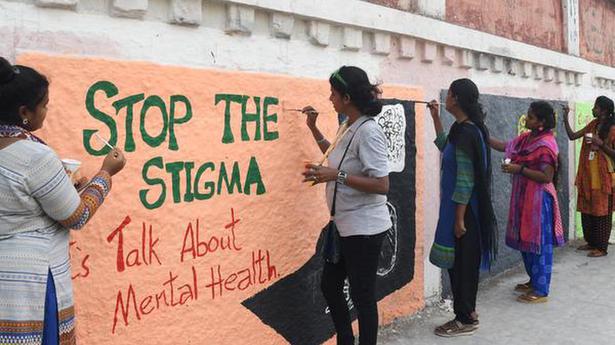
First-time offenders report substance abuse, show signs of personality issues : IMH team
The Hindu
Experts visit them in Saidapet sub-jail as part of project to rehabilitate them
Most young first-time offenders, who had committed petty crimes and were imprisoned at Saidapet sub-jail, reported substance abuse and had personality issues, a team of psychiatrists and social workers of the Institute of Mental Health (IMH) has observed.
In three sessions with the first-time offenders aged 18 to 24 years at the sub-jail, the psychiatrists observed that the majority of them committed crimes under the influence of alcohol or drugs. Some of them had symptoms of depressive disorders.
IMH is one of the stakeholders in PARAVAI (Personality Attitude Reformation Assistance Venture Affirming Identity), a project that aims at rehabilitating young first-time offenders to keep them away from repeating offences in the future. A team comprising a medical officer, clinical psychologist, social worker, art therapist and NGO representatives has paid three visits to the Saidapet sub-jail so far - once in 15 days - interacting with 20 to 25 youngsters each time.
“Our role is to identify persons with substance abuse and mental health issues, and provide required assistance once they are released from the sub-jail. We have to interact with them, address their concerns, screen them for substance use and mental health issues and give referral to IMH for outpatient (OP)/in-patient (IP) service,” said Devi Dhanapalan, senior assistant professor, IMH.
Many of them go through depression, lack support systems, and have committed petty offences such as involvement in brawls/altercations under intoxication, she said, adding: “The aim is to help them understand what led to their committing an offence. It could be substance use, family history of criminal behaviour, environment, personality factors and social stressors such as poverty and lack of education. We have to modify these factors so that they do not move to the next stage.”
The team noticed that being in a prison for the first time was a very stressful experience for the youngsters. “Being separated from their families and the uncertainty over bail and sureties was stressful. In such a situation, many of them were willing to meet and talk with us. It was an opportunity for them to open up,” she said.
Every session starts on a simple note - stories and games to serve as an icebreaker. This is followed by person-to-person interaction. “Once they are released, the police, along with the parents/caregivers, bring them to the OP or IP treatment at IMH. As of now, we have three persons under treatment - one of them admitted for substance abuse and two as outpatients. We provide medications, psychotherapy, relaxation therapy and de-addiction services for them,” Dr. Devi said.

‘Instead of accusing Gen-Z of lacking skills or discipline, we need to ask what drives them’ Premium
At a recent event held in the city, Cambridge University Press & Assessment launched an advisory panel comprising leaders from top global corporations, aiming to bridge the employability gap in India and better align academic output with industry needs. A whitepaper released at the event highlighted the growing importance of communication skills, the need for stronger collaboration between industry and universities, and strategies to bridge the persistent skill gap.

Under the NBS, newborns are screened for communication disorders before they are discharged from the hospital. For this, AIISH has collaborated with several hospitals to conduct screening which is performed to detect hearing impairment and other developmental disabilities that can affect speech and language development. The screening has been helping in early intervention for those identified with the disorders, as any delay in the identification poses risk and affects successful management of children with hearing loss, according to AIISH.











